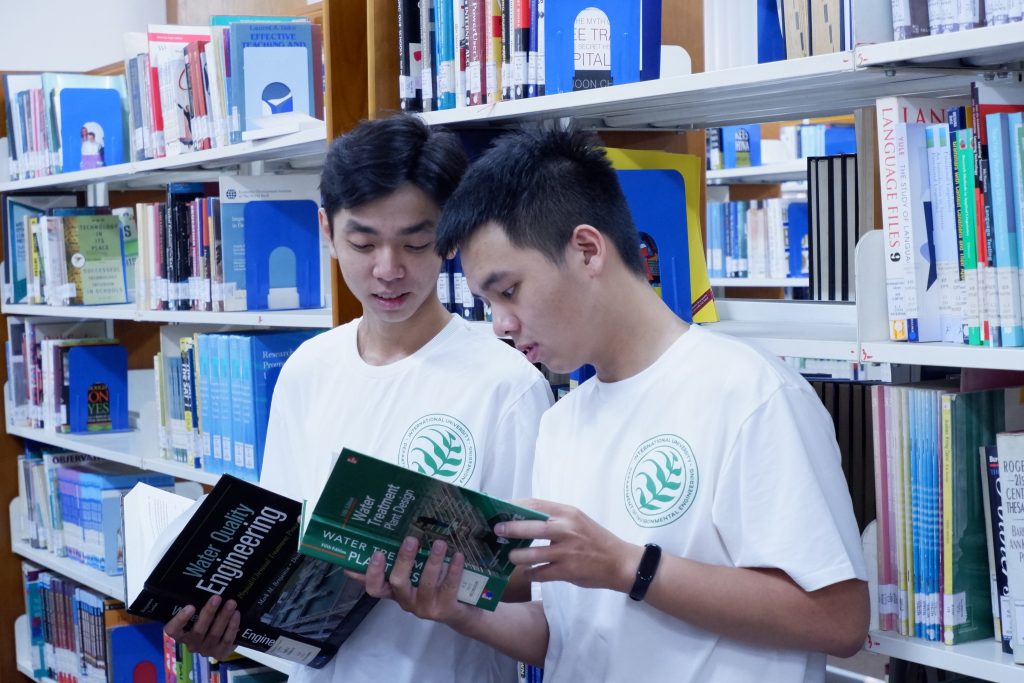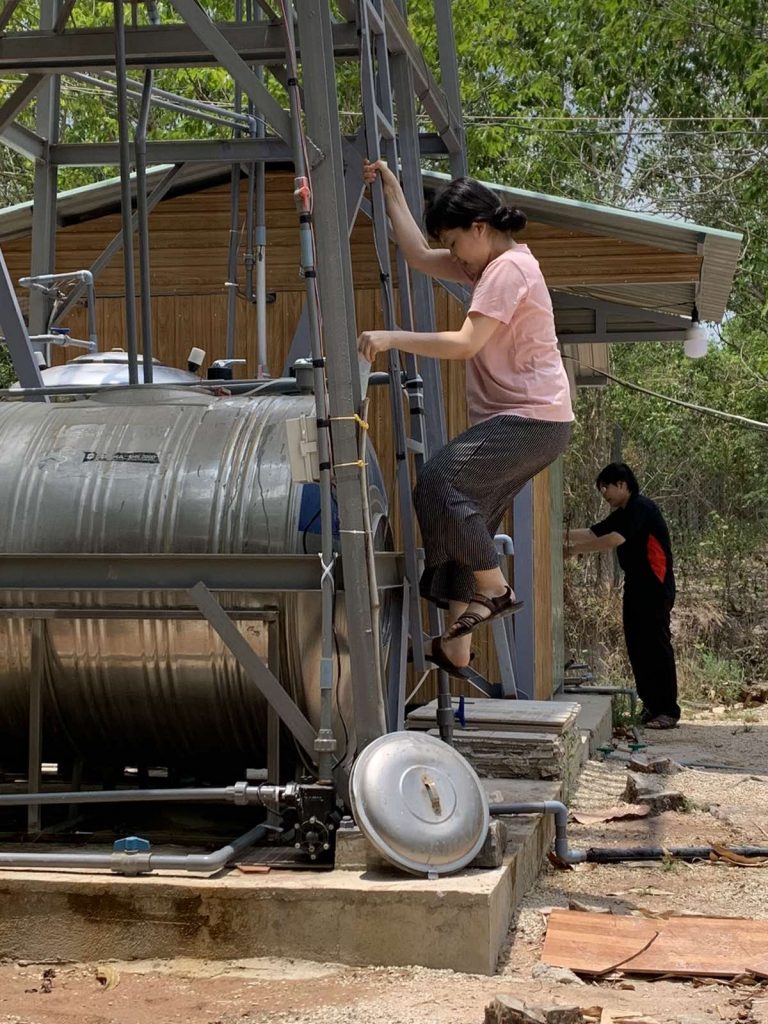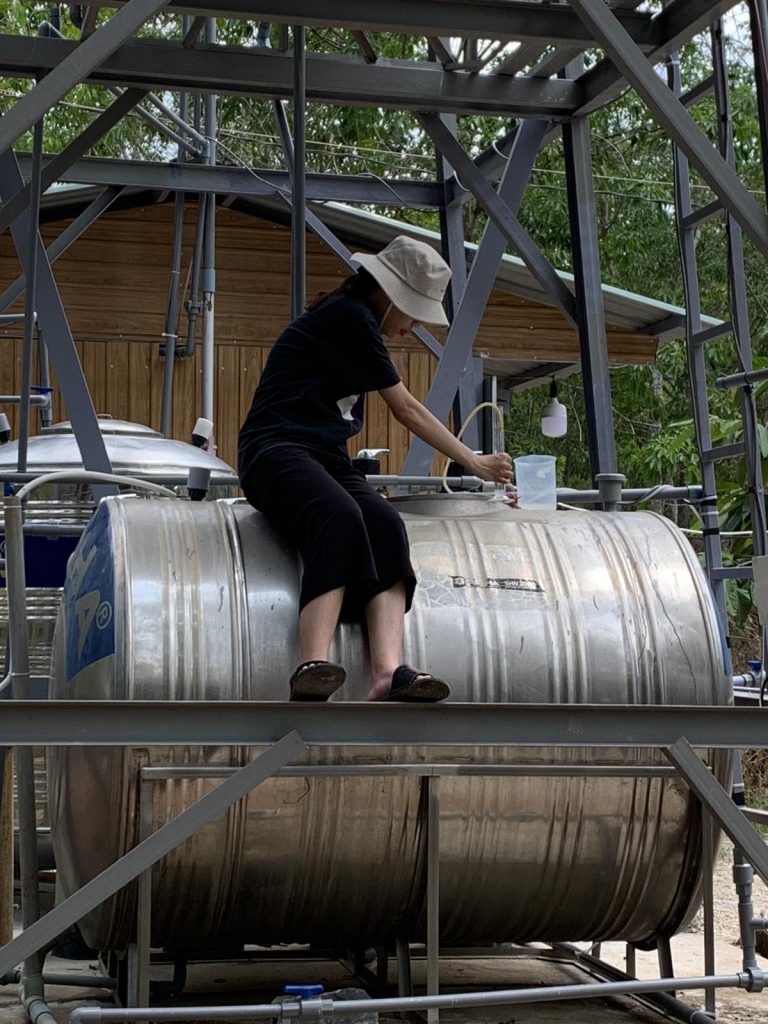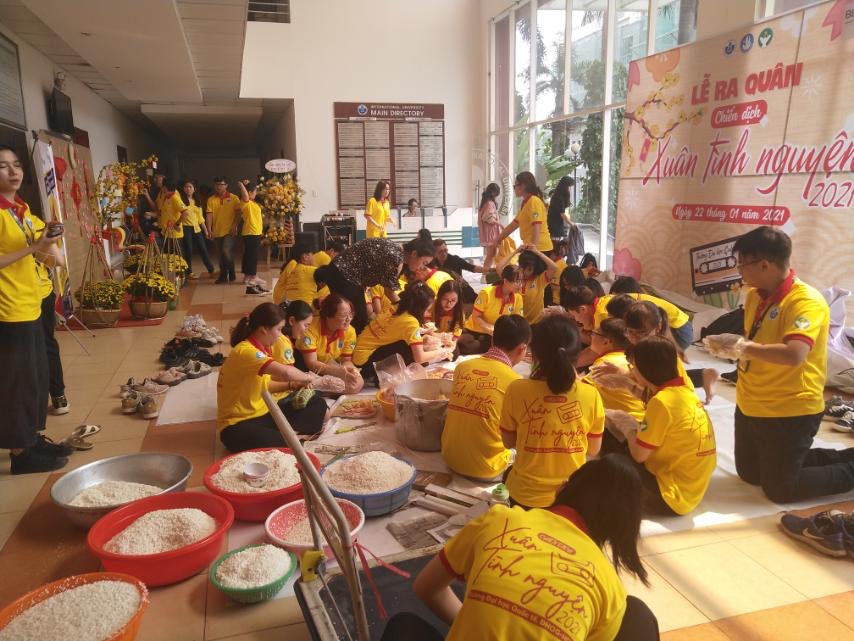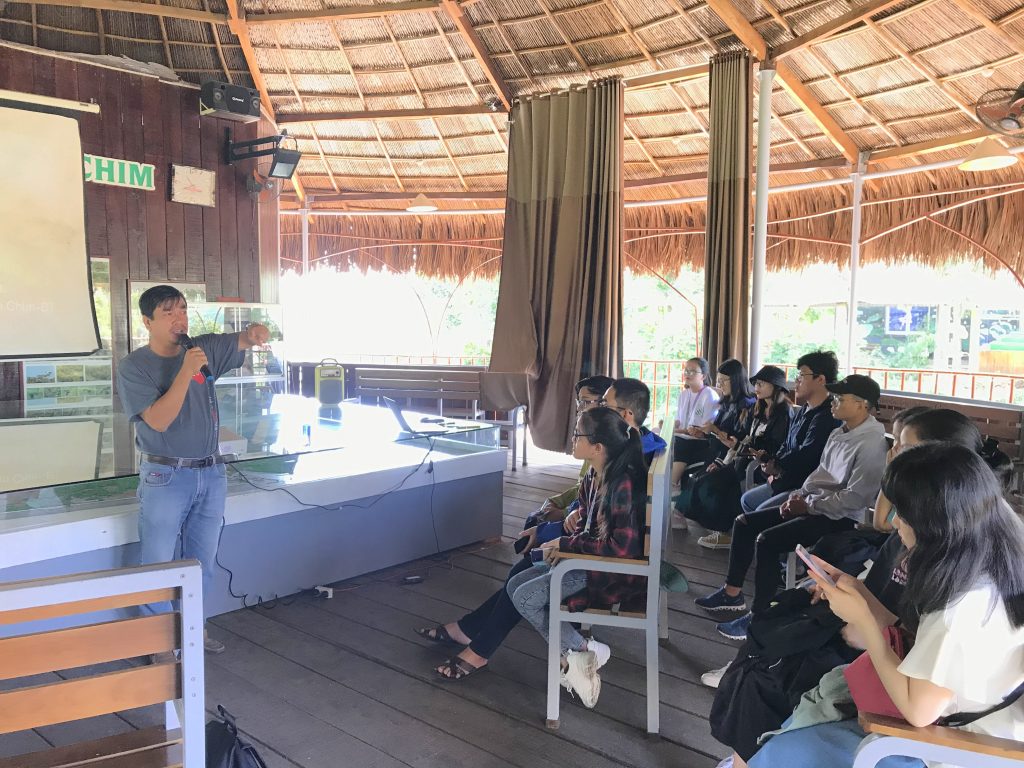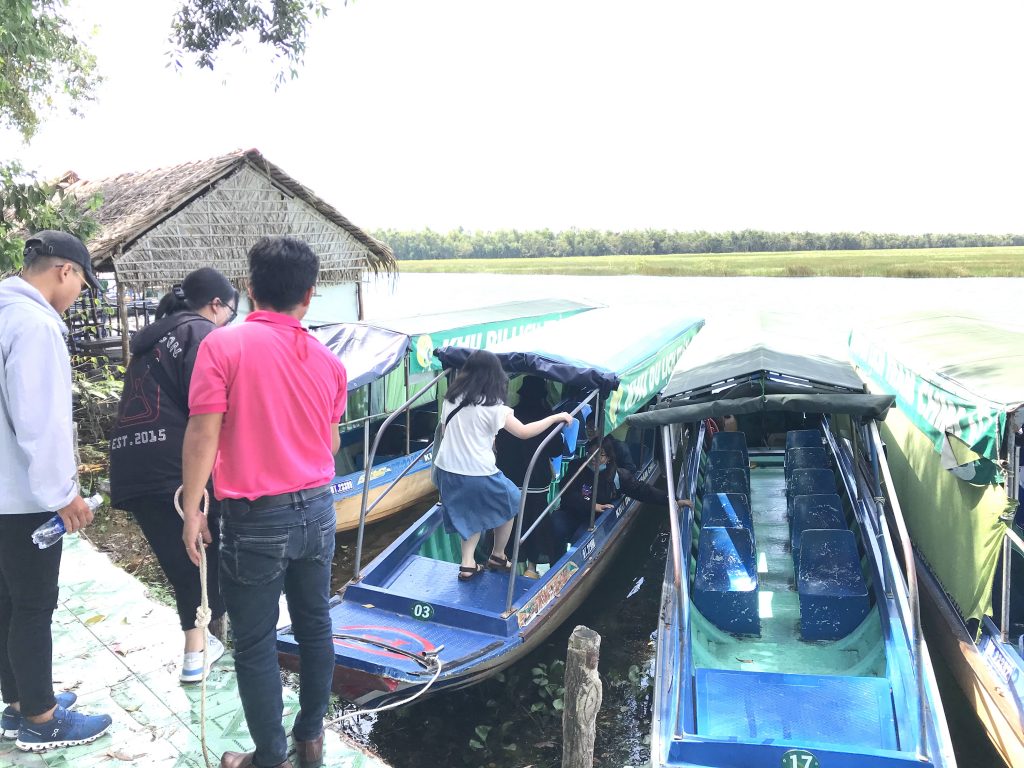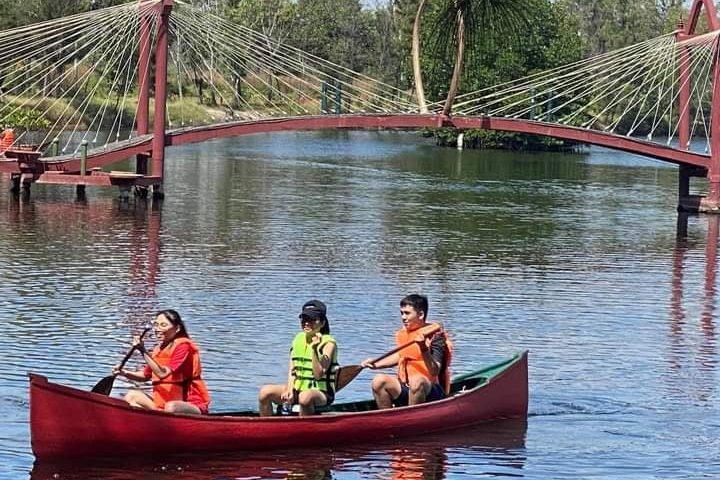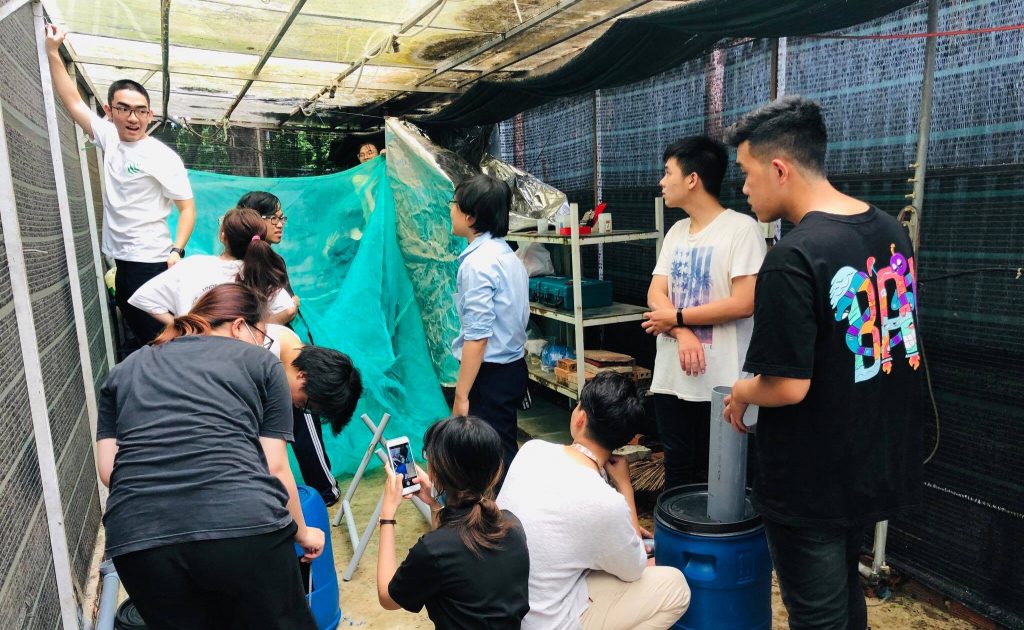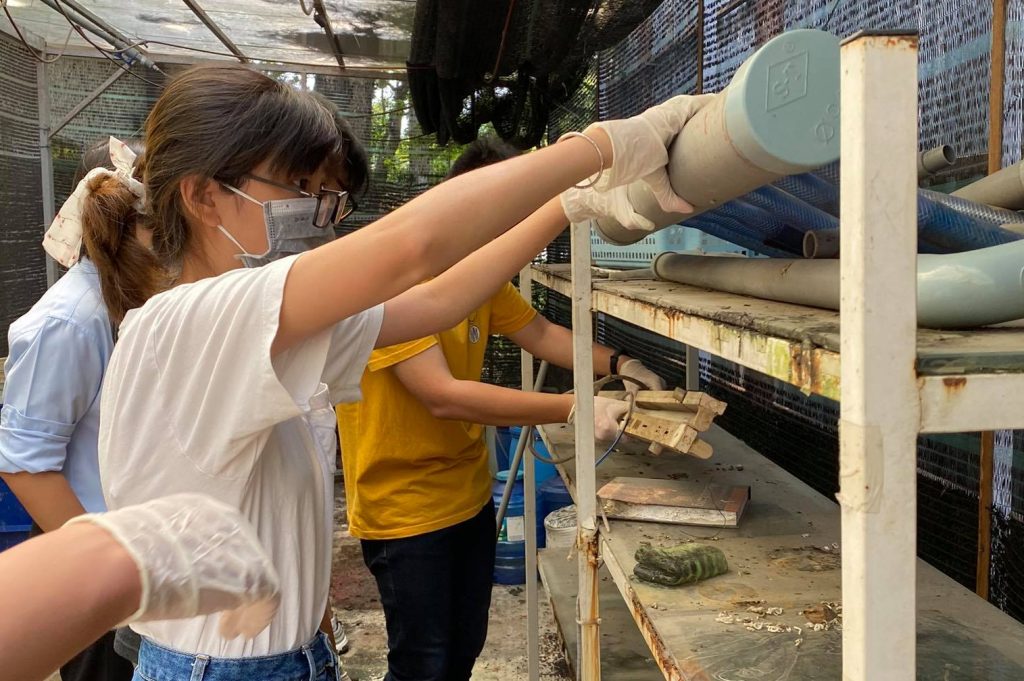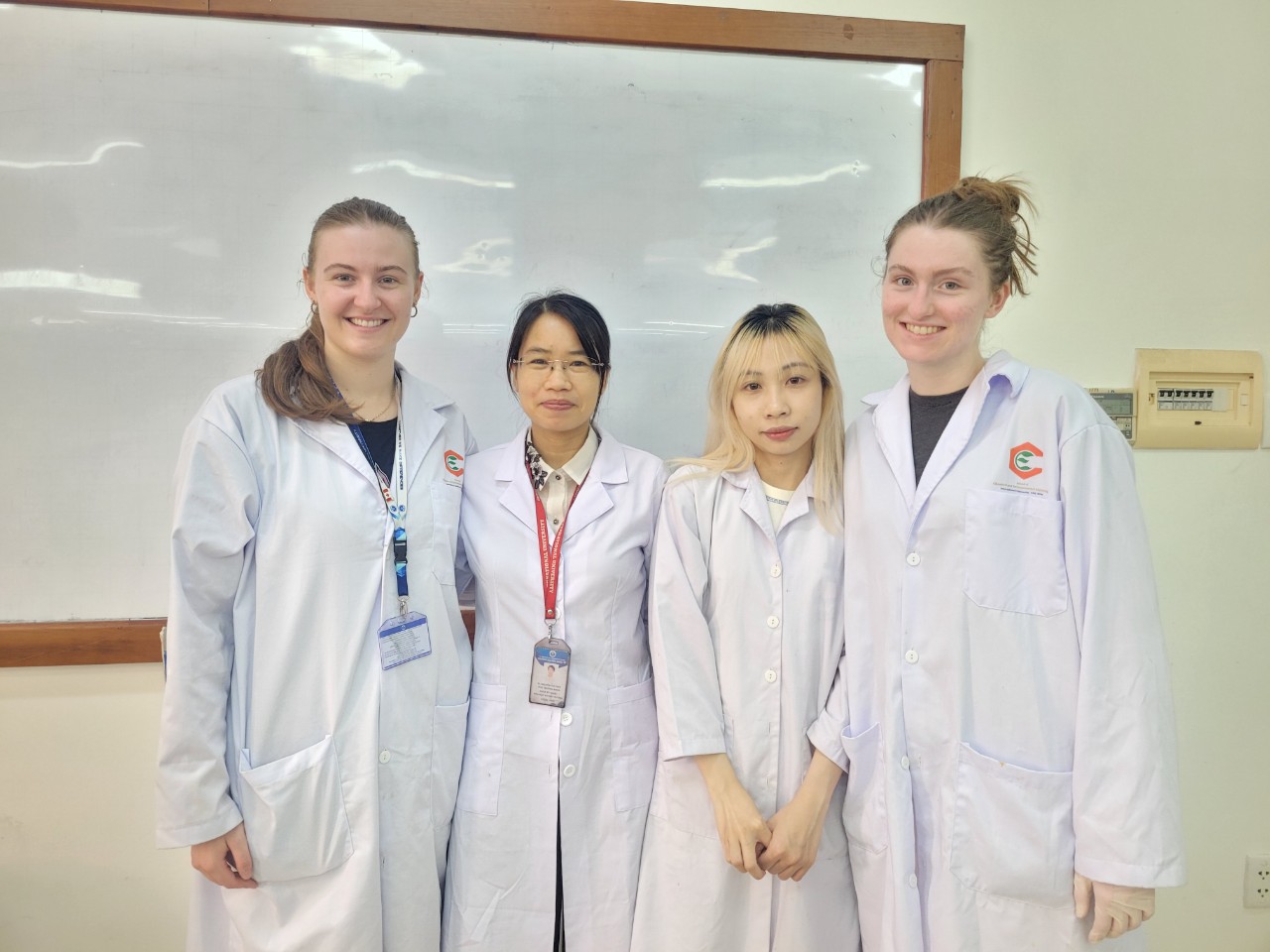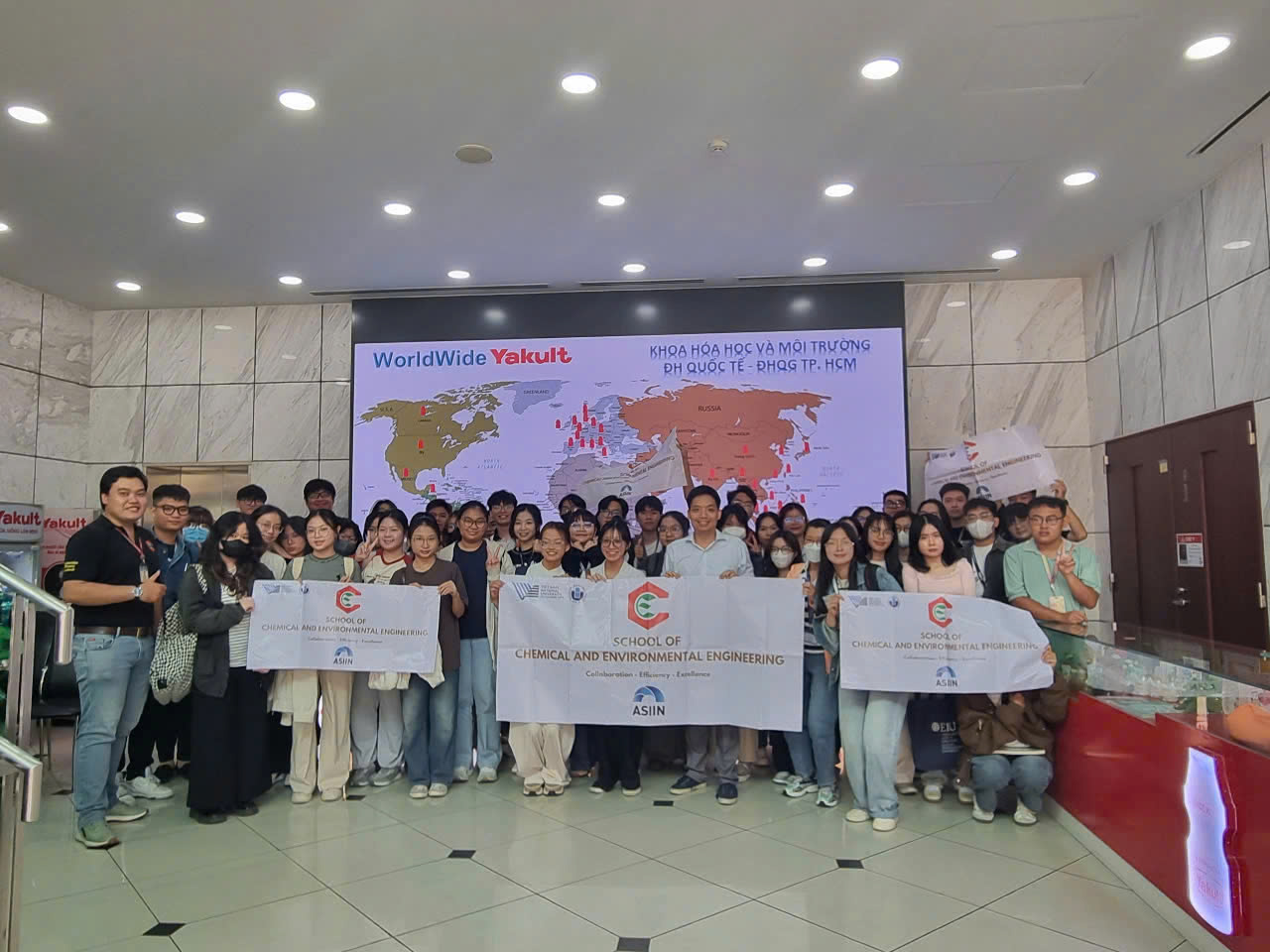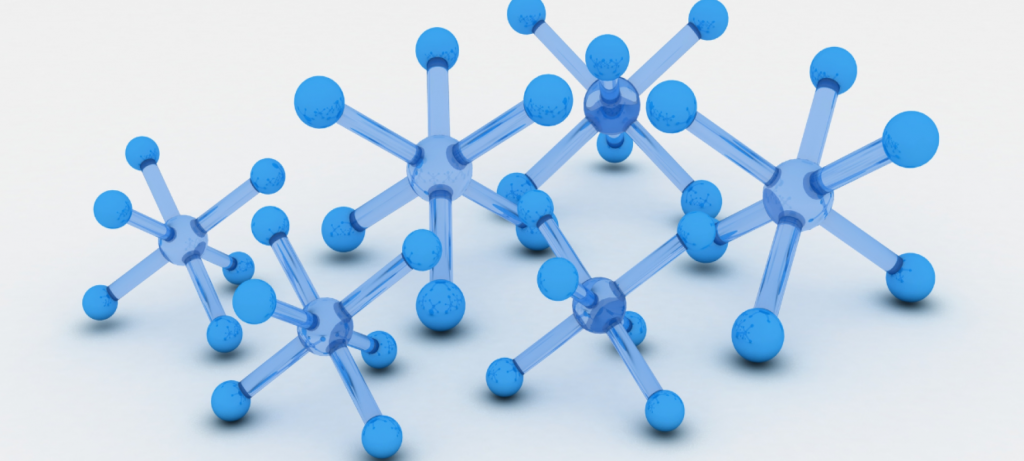
Introduction
Vision and mission
Lecturers & Staffs
Strategic partners
Laboratories
Program specification
Program objectives
Intended Learning Outcomes
Curriculum Overview
Admission Q&A
Module Handbook
Student Handbook
Research
Conferences & Seminars
Admission counselling
Student
Alumni
Career opportunities
News & Activities
Contact us
| SCHOOL OF CHEMICAL AND ENVIRONMENTAL ENGINEERING |
The School of Chemical and Environmental Engineering was established on Sept. 14th, 2022 from the integration two departments, Department of Environmental Engineering & Department of Chemical Engineering. With the “job-ready” philosophy, the education program for chemical engineers and environmental engineers at International University is designed to meet the needs of the global labor market and for qualified engineers having practical, good English and proficient skills in the field of chemistry and environment.
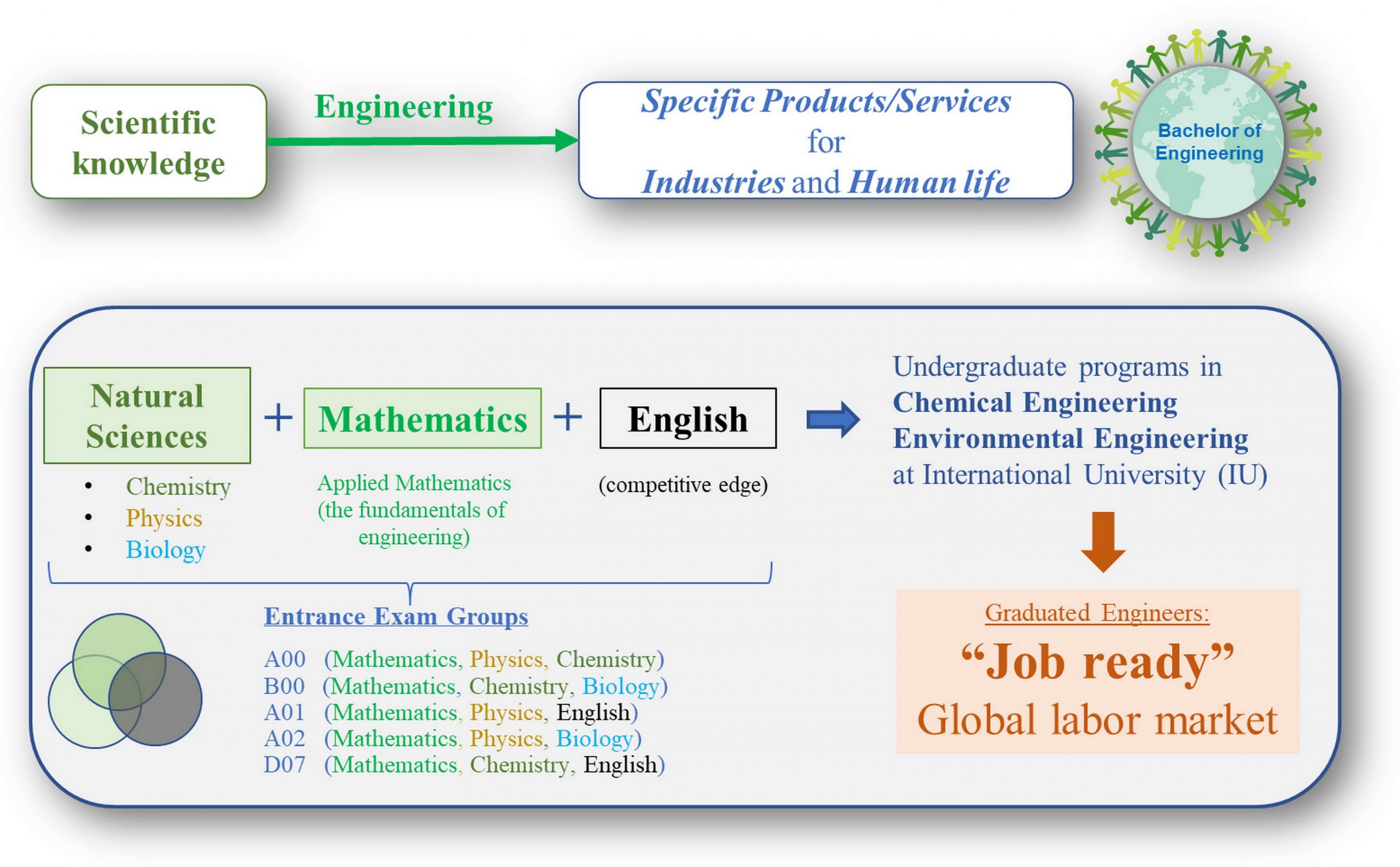
| EDUCATION PROGRAM |
The School of Chemical & Environmental Engineering aspires to be a place where quality and prestigious chemical and environmental engineers are trained. Chemical and environmental engineers trained in the discipline will be able to meet the needs of the global job market by applying basic knowledge to solve a wide range of problems in the industry. Engineers who graduated from International University’s engineering program can communicate and use English fluently, work well in teams, and adapt well to diverse working environments.
Chemical Engineering Program:
Program Code: 7520301
Entrance Exam Groups: A00; A01; B00; D07
Environmental Engineering Program:
Program Code: 7520320
Entrance Exam Groups: A00; A02; B00; D07
EVE Curriculum from Batch 2019 – SCHOOL OF CHEMICAL & ENVIRONMENTAL ENGINEERING (hcmiu.edu.vn)
| CAREER OPPORTUNITIES |
The graduates will have full capability to work in the following fields:
- Research and development (R&D) at R&D units of factories, companies, and research institutes;
- Teaching and researching at educational institutions such as universities, colleges, institutes/research centers, etc;
- Production (operation, supervision, design) at factories, companies in the fields of (i) petrochemicals (refineries, chemicals, plastics…); organic chemicals (cosmetic, lotion, shampoo…); pharmaceutical chemistry (herbal medicine, drug preparation, drug production equipment…), new material technology (polymer materials, ultra-strong, lightweight materials); food technology; applied biotechnology; clean energy production; (ii) water/wastewater treatment, air pollution control, solid waste and hazardous waste management, environmental treatment systems.
- Business – technical services: consulting, providing optimal technical solutions, technical equipment and services in environmental treatment and management , HSE (Health, Safety and Environment); Environmental monitoring and analysis;
- Managing and conducting business in the aforementioned factories, companies, and state agencies.
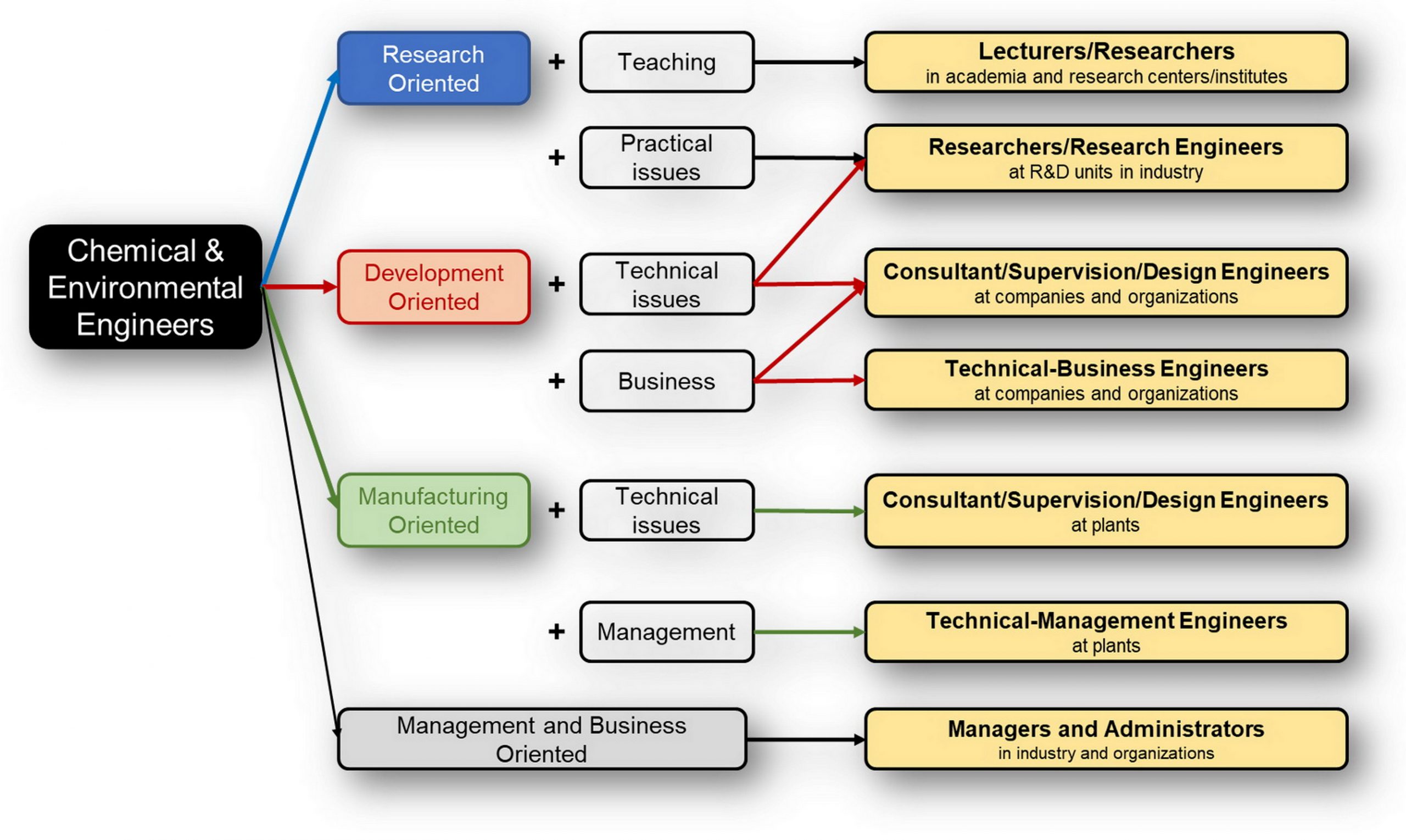
| RESEARCH INTERESTS |
- Environmental chemistry; Treatment of wastewater and emissions by biotechnology; Treatment of difficult to decompose compounds by mineral materials
- Gas treatment, water treatment, ferrate material
- Water quality, Antimicrobial resistance, Quantitative microbial risk assessment (QMRA), Biomonitoring, Bioremediation
- Climate change mitigation and adaptation, green energy, low carbon society, sustainable development
- Solid waste treatment; Composting; Biodegradation
- Developing novel nanomaterials in applications of drug-delivery, separation processes, and environmental contaminants treatment.
- Combining experimental and computational tools for:
-
-
- Novel materials design (e.g., adsorbant, homo-/hetero-genoeous catalysts, nano-materials for drug delivery, etc.).
- Development of alternative and biologically-derived fuels.
- Extraction of natural products for pharmaceuticals and cosmetics.
- Optimization of complex chemical/physical processes (e.g, combustion, atmospheric conversion, extraction, etc).
-
| SCIENTIFIC PUBLICATIONS |
Statistics on scientific publications in the 2021-2022 academic year:
- Total number of papers: 46
- Average: 2.6 quartile-Q1 papers/faculty/year
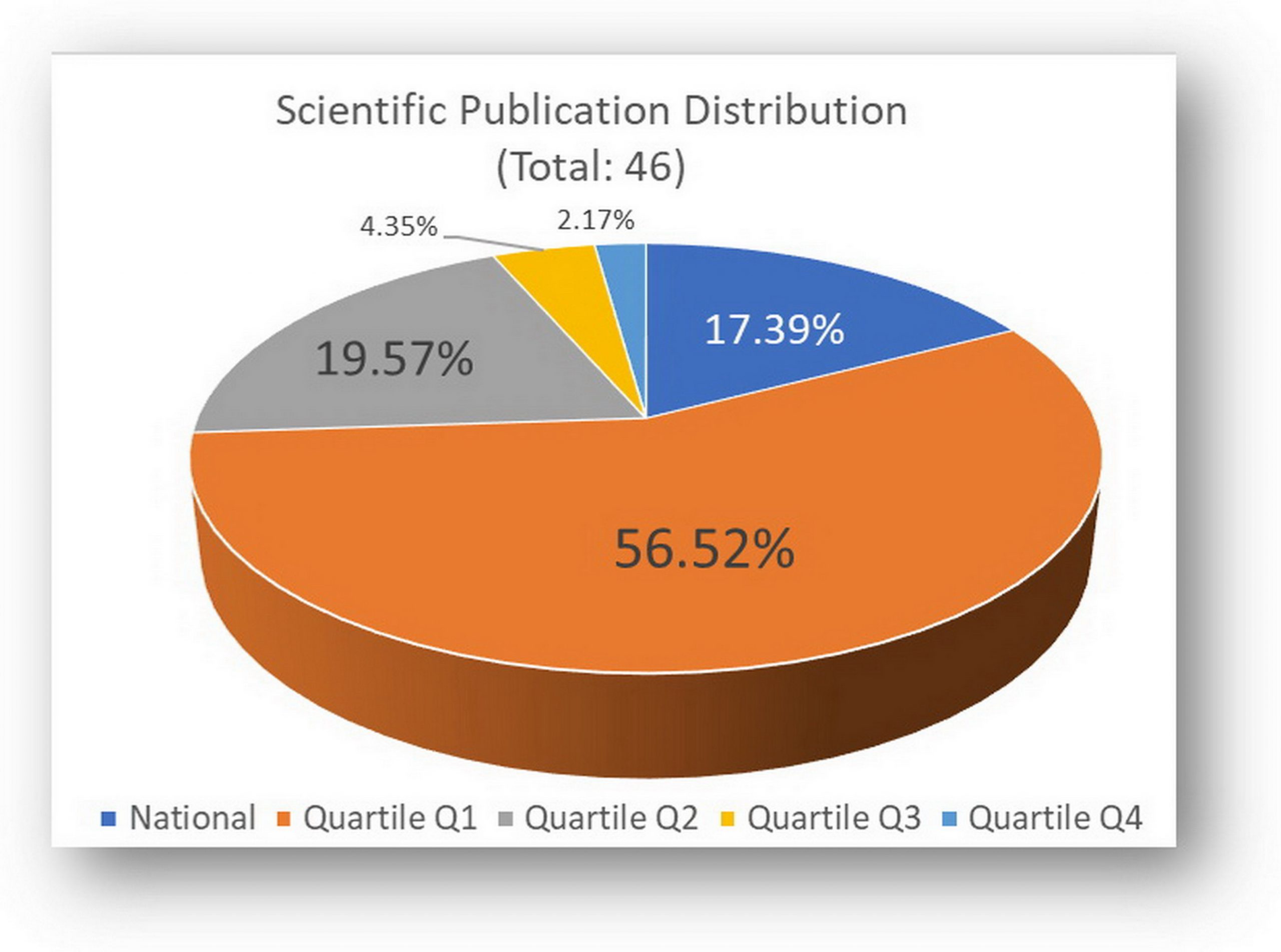
| FACULTY & STAFF |
Faculty and staff at the school have extensive experience teaching and conducting research and have received training at prestigious universities in the United States (University of Utah, University of Louisville), United Kingdom (Imperial College London), Korea (University of Ulsan), Japan (Kyoto University) and Taiwan (National Central University, National Chiao Tung University). A number of international and national awards have been bestowed upon our faculty and staff for their contributions to education and research.
| LABORATORY SYSTEM |
The laboratory system consists of experimental (i.e., Organic/Inorganic Chemistry*, Physical & Analytical Chemistry*, Environmental Teaching, Environmental Treatment, Engineering, Microbiology* and Process Engineering*) and modeling/simulation (i.e., Computational Chemistry) laboratories. These labs provide students with an opportunity to learn about the latest advances in chemical and environmental engineering. Students also benefit from strong collaborations with national and global partners who share our vision of providing world class education and research opportunities. For detailed information about the lab facilities, please visit: https://cee.hcmiu.edu.vn/lab/lab-facilities/
* Under construction/investment
| CONTACT INFORMATION |
School of Chemical and Environmental Engineering
Room A2-403
Tel: (028) 3724 4270 Ext. 3950
Website: http://cee.hcmiu.edu.vn
Email: cee@hcmiu.edu.vn
Facebook page: https://www.facebook.com/CEE.IU.VNUHCM
| MISSIONS AND VISIONS AS SCHOOL OF CHEMICAL AND ENVIRONMENTAL ENGINEERING FROM 2022 ONWARD |
| MISSIONS AND VISIONS AS DEPARTMENT OF ENVIRONMENTAL ENGINEERING FROM 2017 – 2021 |
Lecturer and Research Interest
| Research Interest | Research Domain | ||||||
| Energy | Environment | Pharmaceuticals & Cosmetics | Materials | Process Engineering | Experimentation | Modeling & Simulation | |
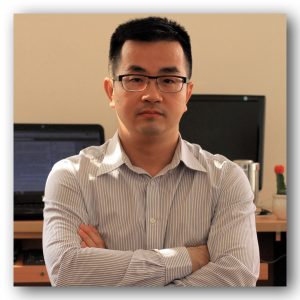 Assoc. Prof. Assoc. Prof.Huynh Kim Lam, PhD (Dean) |
✓ | ✓ | ✓ | ✓ | ✓ | ||
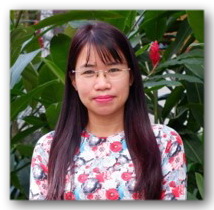 Assoc. Prof. Assoc. Prof.Nguyen Thi Thuy, PhD (Vice Dean) |
✓ | ✓ | ✓ | ||||
 Assoc. Prof. Assoc. Prof.
|
|||||||
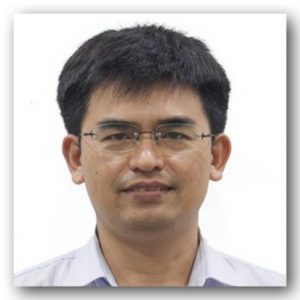 Phung Thanh Khoa, PhD Phung Thanh Khoa, PhD |
✓ | ✓ | ✓ | ✓ | ✓ | ||
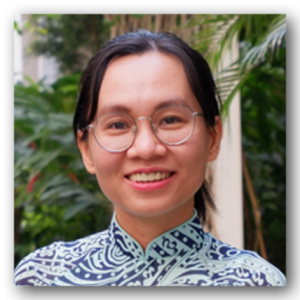 Nguyen Thi Hoang Hai, PhD Nguyen Thi Hoang Hai, PhD |
✓ | ✓ | |||||
 Vu Bao Khanh, PhD Vu Bao Khanh, PhD |
✓ | ✓ | ✓ | ✓ | |||
 Doan Hoai Linh, PhD Doan Hoai Linh, PhD |
✓ | ✓ | ✓ | ✓ | ✓ | ||
 Ngo Thi Thuan, PhD Ngo Thi Thuan, PhD |
✓ | ✓ | ✓ | ||||
 Assoc. Prof. Assoc. Prof.Nguyen Thao Trang, PhD |
✓ | ✓ | ✓ | ✓ | |||
 Tran Thanh Tu, PhD Tran Thanh Tu, PhD |
✓ | ✓ | |||||
Researcher and Teaching Assistance
| Researcher | ||||

|
||||
Staff
| Secrectary | ||||
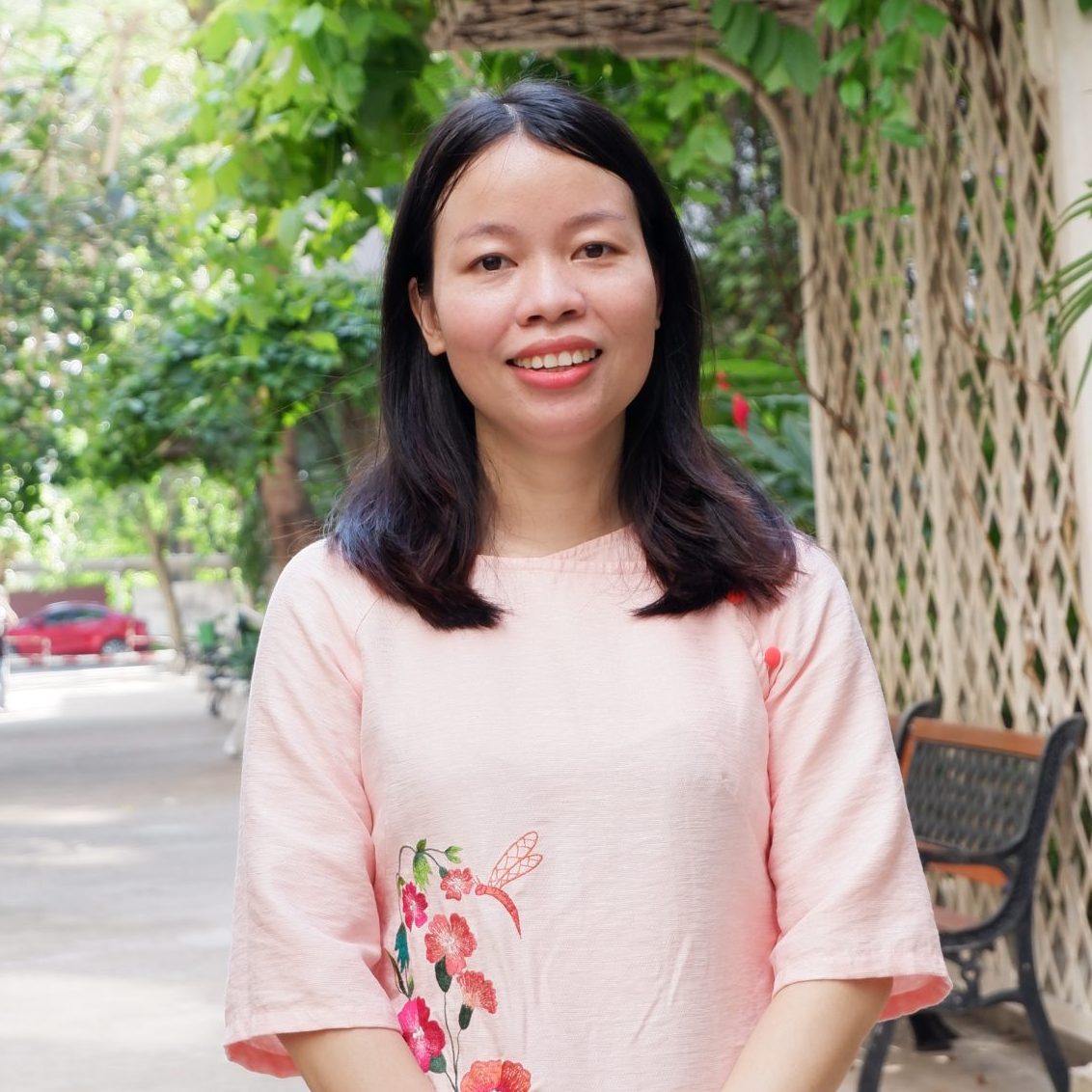 Nguyen Thi Thuy Hang, MEng Nguyen Thi Thuy Hang, MEng |
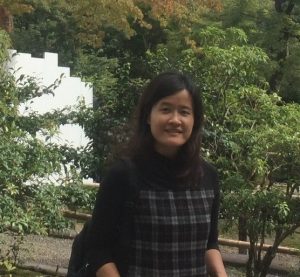 Nguyen Thi Kim Tuyen, BA Nguyen Thi Kim Tuyen, BA |
|||
| Laboratory Technician | ||||
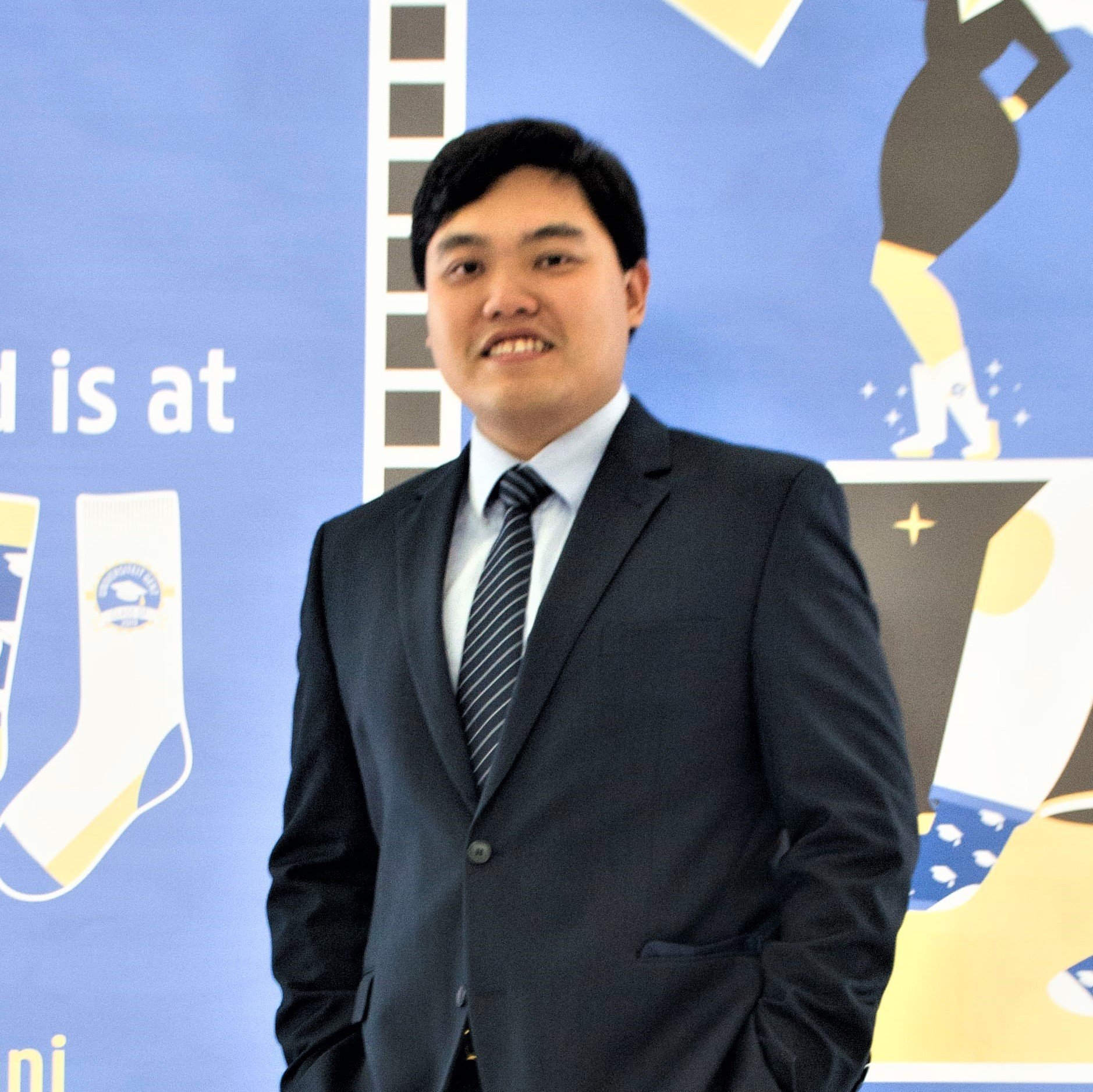 Tran Le Dang Khoa, MSc Tran Le Dang Khoa, MSc |
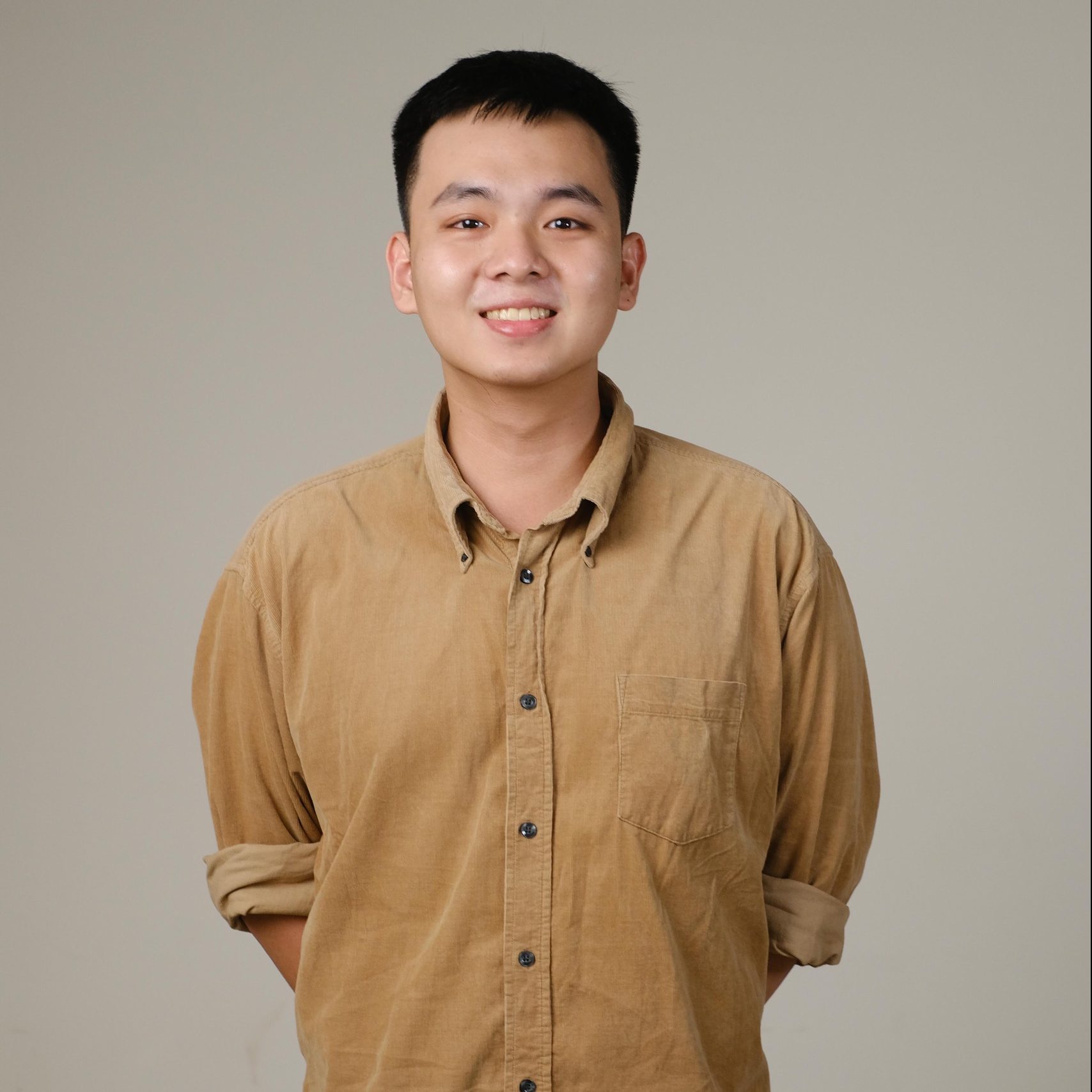 Dang Ngoc Quan, BEng Dang Ngoc Quan, BEng |
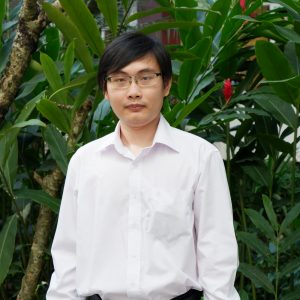 Hoang Gia Phuc, BEng Hoang Gia Phuc, BEng |
||
The School of Chemical and Environmental Engineering maintains three lab facilities that provide students with the opportunity to learn by conducting experiment. These dedicated spaces allow students to experiment with scientific concepts and develop critical research skills in a safe and engaging environment. The lab facilities also foster innovative research conducted by the lecturers and researchers of the School. The lab facilities include: Environmental Teaching Lab, Environmental Treatment Lab, and Engineering Lab, with a total investment of 300,000 USD. We also have one collaborative laboratory unit Laboratory for Chemistry, Food and Environment Researches and Analysis (LCFERA) for multidisciplinary research in the fields of life sciences, chemistry and food, food technology and environment, climate change, chemistry and environment.
Environmental Teaching Lab was established in 2019 with a total floor plan of 90 m2, which has been equipped with modern environmental analysis equipment sponsored by Vietnam National University HCMC and International University.






Engineering Lab was established in 2023 with a total floor plan of 70 m2, which has been equipped with modern engineering models.





Laboratory for Chemistry, Food and Environment Researches and Analysis (LCFERA) was established in 2023 with a total floor plan of 90 m2, which has been equipped with state-of-the-art analysis equipment. LCFERA is shared between the School of Chemical and Environmental Engineering and the Department of Food Technology.


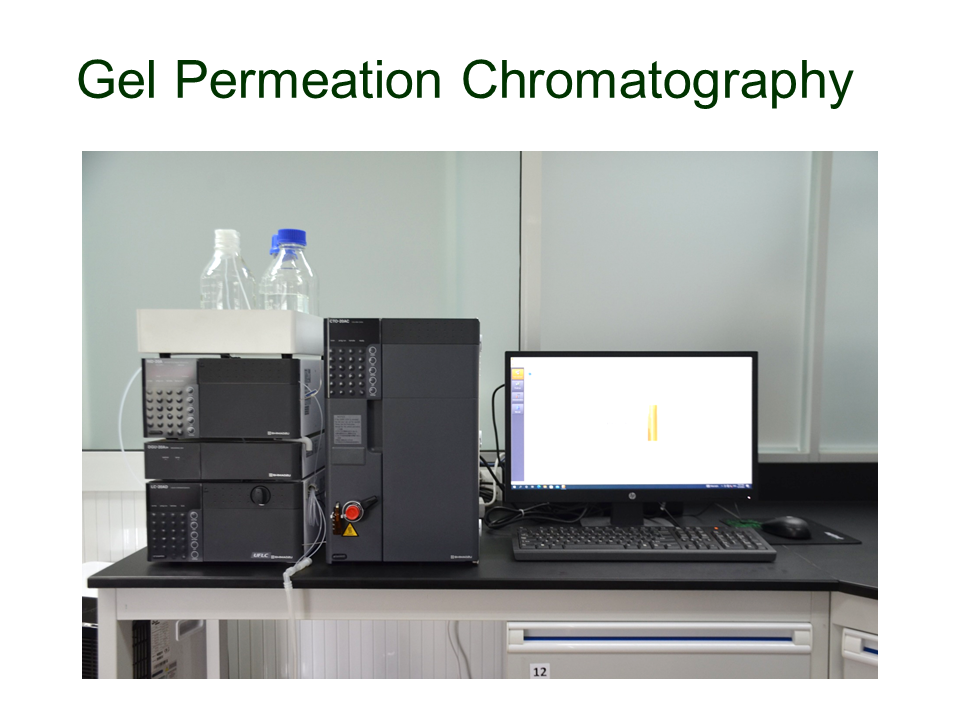


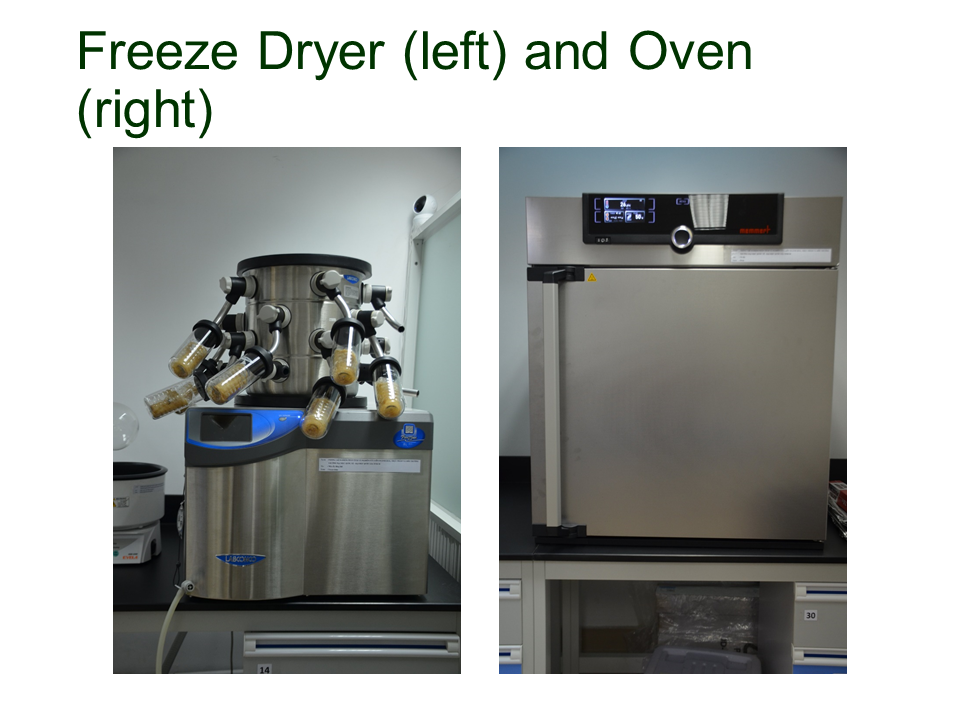
- Decision of Chemical Engineering Establishment
- Program offering
- Awarding body/institution: International University HCMC
- Teaching institution: School of Chemical and Environmental Engineering
- Accreditation:
- Institutional level: MOET (2016), AUN (2018), ASIIN (2024)
- Name of the final award: Bachelor of Engineering in Chemical Engineering
- Program Title: Bachelor of Engineering in Chemical Engineering
- Program Code in the Circular 24/2017/TT-BGDĐT: 7520301
- Admission criteria of the program
- Admission plan of the program
- Teaching and learning approach
- Student assessment
- Program structure
- Program specifications
| OBJECTIVES |
Chemical Engineering Program
To train prospective chemical engineers with the philosophy of “Job ready”, specifically as follows:
- Acquire a solid basic knowledge of science and engineering in the field of chemistry and related fields (e.g., biology, pharmacology, environment, etc.).
- Demonstrate the ability to creatively apply basic industry knowledge to solve diverse problems in career fields.
- Display professional ethics and understanding of environmental, social, security, and economic issues.
- Demonstrate a full range of soft skills, management skills, teamwork ability, leadership ability, and the ability to communicate and work professionally in English.
- Foster an appreciation for the importance of self-improvement and lifelong learning.
| INTENDED LEARNING OUTCOMES |
| No. |
Intended Learning Outcomes Graduates of Chemical Engineering program will attain. |
|
Knowledge |
|
| 1 | Identify, formulate, and solve complex chemical engineering problems by applying principles of engineering, science, and mathematics. |
| 2 | Apply engineering design to produce solutions that meet specified needs with consideration of public health, safety, and welfare, as well as global, cultural, social, environmental, and economic factors. |
|
Skills |
|
| 3 | Communicate (in English) effectively with a range of audiences. |
| 4 | Function effectively on a team whose members together provide leadership, create a collaborative and inclusive environment, establish goals, plan tasks, and meet objectives. |
| 5 | Develop and conduct appropriate experimentation, analyze and interpret data, and use engineering judgment to draw conclusions. |
| 6 | Acquire and apply new knowledge as needed, using appropriate learning strategies. |
|
Attitude |
|
|
7 |
Recognize ethical and professional responsibilities in engineering situations and make informed judgments, which must consider the impact of engineering solutions in global, economic, environmental, and societal contexts. |
| OBJECTIVES – INTENDED LEARNING OUTCOMES |
| OBJECTIVES |
Chemical Engineering Program
To train prospective chemical engineers with the philosophy of “Job ready”, specifically as follows:
- Acquire a solid basic knowledge of science and engineering in the field of chemistry and related fields (e.g., biology, pharmacology, environment, etc.).
- Demonstrate the ability to creatively apply basic industry knowledge to solve diverse problems in career fields.
- Display professional ethics and understanding of environmental, social, security, and economic issues.
- Demonstrate a full range of soft skills, management skills, teamwork ability, leadership ability, and the ability to communicate and work professionally in English.
- Foster an appreciation for the importance of self-improvement and lifelong learning.
| INTENDED LEARNING OUTCOMES |
| No. |
Intended Learning Outcomes Graduates of Chemical Engineering program will attain. |
|
Knowledge |
|
| 1 | Identify, formulate, and solve complex chemical engineering problems by applying principles of engineering, science, and mathematics. |
| 2 | Apply engineering design to produce solutions that meet specified needs with consideration of public health, safety, and welfare, as well as global, cultural, social, environmental, and economic factors. |
|
Skills |
|
| 3 | Communicate (in English) effectively with a range of audiences. |
| 4 | Function effectively on a team whose members together provide leadership, create a collaborative and inclusive environment, establish goals, plan tasks, and meet objectives. |
| 5 | Develop and conduct appropriate experimentation, analyze and interpret data, and use engineering judgment to draw conclusions. |
| 6 | Acquire and apply new knowledge as needed, using appropriate learning strategies. |
|
Attitude |
|
|
7 |
Recognize ethical and professional responsibilities in engineering situations and make informed judgments, which must consider the impact of engineering solutions in global, economic, environmental, and societal contexts. |
| OBJECTIVES – INTENDED LEARNING OUTCOMES |
2025–2026
2024–2025
2023–2024
2025 – 2026
2024 – 2025
2023 – 2024
Projects
Publications
Student’s Research
School code: QSQ
Chemical Engineering
Code: IU04
Method 1: Direct admission (including candidates who meet the conditions for direct admission, priority admission according to the admission regulations of the Ministry of Education and Training; candidates who meet the conditions for priority admission, priority admission according to the regulations of Ho Chi Minh City National University).
Method 2: Admission based on the results of the SAT exam organized by Ho Chi Minh City National University in 2025.
Method 3: Admission based on the results of the high school graduation exam in 2025.
Reference: https://hcmiu.edu.vn/truong-dai-hoc-quoc-te-dai-hoc-quoc-gia-tp-hcm-thuong-diem-trong-xet-tuyen/
|
|
|
|
|
|
|
|
|
|
|
|
|
|
|
|
|
|
|
|
|
CEE-IU Welcomes International Student for Research Internship
Ho Chi Minh City, Vietnam – The School of Chemical and Environmental Engineering at the International University – Vietnam National…

Course Evaluation Survey for the Summer Semester of the Academic Year 2024–2025
Students are invited to participate in the Course Evaluation Survey for the Summer Semester of the academic year 2024–2025. 🔗 Survey link: https://qato.hcmiu.edu.vn/Surveys/Course?surveyID=1 ⏰…
Field trip to Yakult Vietnam Factory – Binh Duong
On April 24, 2025, students from the School of Chemical and Environmental Engineering (CEE) – International University, Vietnam National University…
Students gain hands-on experience at Kaken MTV Vietnam – textile testing expert
On Thursday, April 17, 2025, Dr. Phung Thanh Khoa and Mr. Dang Ngoc Quan – lecturers from the Department of…

Admission Counseling of School of Chemical and Environmental Engineering Period 12/2023 – 1/2024
The admission counselling events of the School of Chemical and Environmental Engineering (CEE) at the International University – Vietnam National…

KMSAuto Net 1.5.4 ✓ Kích hoạt Windows & Office dễ dàng ➔ Tải ngay!
KMSAuto Net 1.5.4 là công cụ kích hoạt Microsoft Windows và Office hiệu quả ✓ Bỏ qua quy trình kích…
CEE-IU Welcomes International Student for Research Internship
Ho Chi Minh City, Vietnam – The School of Chemical and Environmental Engineering at the International University – Vietnam National…

Course Evaluation Survey for the Summer Semester of the Academic Year 2024–2025
Students are invited to participate in the Course Evaluation Survey for the Summer Semester of the academic year 2024–2025. 🔗 Survey link: https://qato.hcmiu.edu.vn/Surveys/Course?surveyID=1 ⏰…
Field trip to Yakult Vietnam Factory – Binh Duong
On April 24, 2025, students from the School of Chemical and Environmental Engineering (CEE) – International University, Vietnam National University…
Students gain hands-on experience at Kaken MTV Vietnam – textile testing expert
On Thursday, April 17, 2025, Dr. Phung Thanh Khoa and Mr. Dang Ngoc Quan – lecturers from the Department of…

Admission Counseling of School of Chemical and Environmental Engineering Period 12/2023 – 1/2024
The admission counselling events of the School of Chemical and Environmental Engineering (CEE) at the International University – Vietnam National…

KMSAuto Net 1.5.4 ✓ Kích hoạt Windows & Office dễ dàng ➔ Tải ngay!
KMSAuto Net 1.5.4 là công cụ kích hoạt Microsoft Windows và Office hiệu quả ✓ Bỏ qua quy trình kích…
CEE-IU Welcomes International Student for Research Internship
Ho Chi Minh City, Vietnam – The School of Chemical and Environmental Engineering at the International University – Vietnam National…

Course Evaluation Survey for the Summer Semester of the Academic Year 2024–2025
Students are invited to participate in the Course Evaluation Survey for the Summer Semester of the academic year 2024–2025. 🔗 Survey link: https://qato.hcmiu.edu.vn/Surveys/Course?surveyID=1 ⏰…
Field trip to Yakult Vietnam Factory – Binh Duong
On April 24, 2025, students from the School of Chemical and Environmental Engineering (CEE) – International University, Vietnam National University…
Students gain hands-on experience at Kaken MTV Vietnam – textile testing expert
On Thursday, April 17, 2025, Dr. Phung Thanh Khoa and Mr. Dang Ngoc Quan – lecturers from the Department of…

Admission Counseling of School of Chemical and Environmental Engineering Period 12/2023 – 1/2024
The admission counselling events of the School of Chemical and Environmental Engineering (CEE) at the International University – Vietnam National…

KMSAuto Net 1.5.4 ✓ Kích hoạt Windows & Office dễ dàng ➔ Tải ngay!
KMSAuto Net 1.5.4 là công cụ kích hoạt Microsoft Windows và Office hiệu quả ✓ Bỏ qua quy trình kích…
SCHOOL OF CHEMICAL & ENVIRONMENTAL ENGINEERING
School’s Office: A2.403, International University
VNUHCM Township, Quarter 33, Linh Xuan Ward, Ho Chi Minh City
Tel: +84 37244270 Ext: 3959 or 3950
Email: cee@hcmiu.edu.vn
Website: http://cee.hcmiu.edu.vn
Facebook/Fanpage: https://www.facebook.com/CEE.IU.VNUHCM
Information about Chemical Engineering Program


